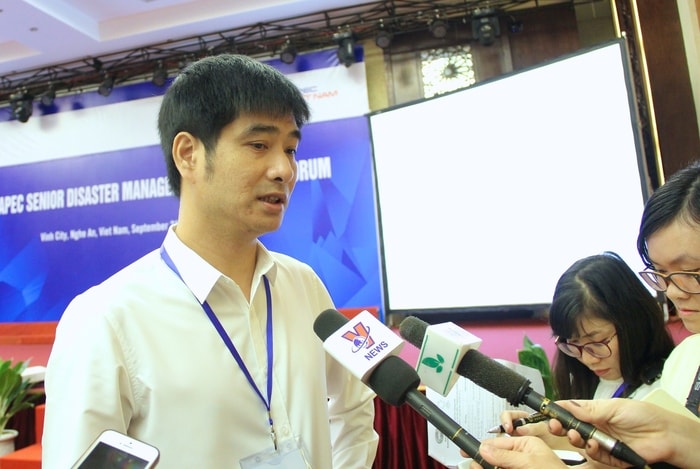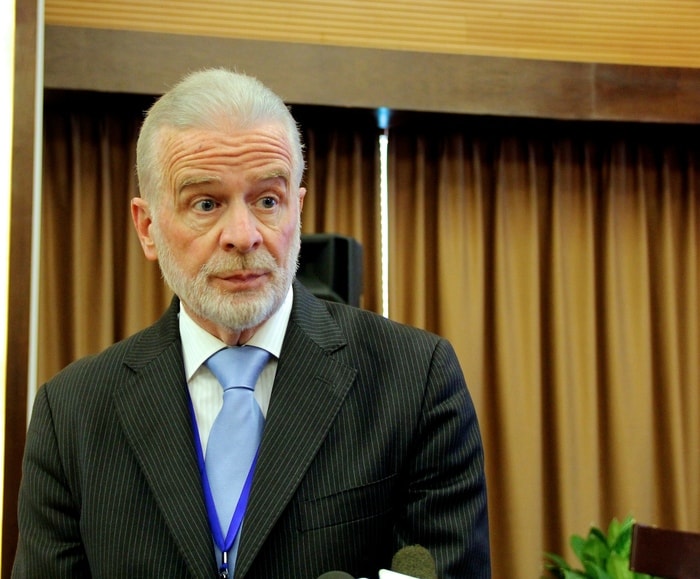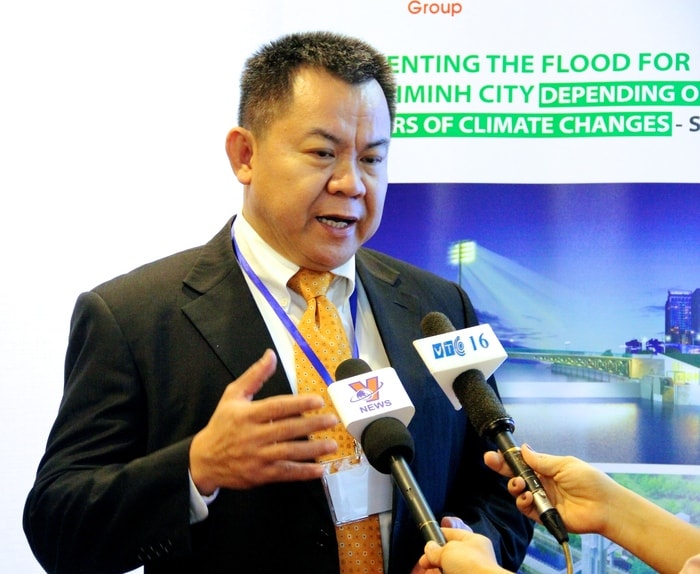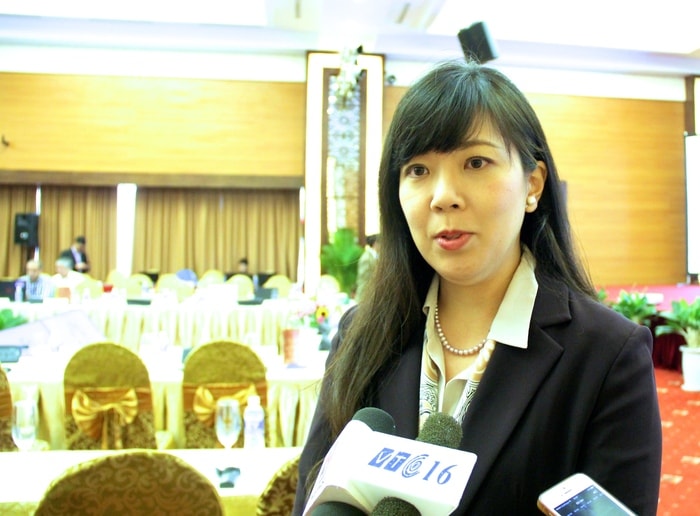APEC 2017 in Nghe An: Proposals for disaster risk management
(Baonghean.vn) - Promoting the application of science and technology; enhancing cooperation and promoting information sharing between the State and enterprises in responding to climate change and natural disasters - are recommendations from enterprises and international organizations at the 2017 APEC Conference on disaster risk management.
Nguyen Tri Thanh - senior program officer of Asian Foundation: The State needs to build a culture of responding to natural disaster risks for Vietnamese enterprises.
 |
| Mr. Nguyen Tri Thanh - Senior Representative of Asia Foundation. |
"Vietnamese enterprises are very aware of the risks of natural disasters and climate change. However, the gap between awareness and action is still very large. The reason is that enterprises are facing difficulties in capital and scale of operations, so natural disasters are just a "side story" of enterprises.
Instead of investing resources in relief for businesses, orienting businesses to participate in disaster prevention for the community is a new direction worldwide. Through this, businesses can fully access information sources and databases to proactively build strategies to respond to climate change and natural disaster risks.
At this Conference, we hope that the State will build a culture of responding to natural disaster risks for Vietnamese enterprises.Promoting public-private partnership in disaster risk management will promote the cooperation of business associations with central and local government agencies in developing and implementing business-oriented disaster risk management policies, promoting corporate social responsibility towards prevention in the community.
Mr. Philip Gibson - Representative of New Zealand economy: It is necessary to enhance the role of businesses in disaster risk management.
 |
| Mr. Philip Gibson - Representative of New Zealand economy. |
"Enterprises play a major role in improving and applying scientific technology, as well as providing information quickly to respond promptly to natural disasters. Strengthening cooperation between the State, the private sector as well as relevant parties to improve response capacity for businesses is extremely necessary. Because in the context of increasingly severe natural disasters, not only do they directly impact sustainable development efforts, but they also disrupt and interrupt production and business activities of businesses and the entire country."
Nguyen Tam Tien - General Director of Trung Nam Group: Vietnam needs to build effective policies to promote public-private cooperation.
 |
| Representatives of Trung Nam Group spoke to the press on the sidelines of the conference. |
"In recent years, the impact of natural disaster risks and climate change on the production and business activities of Vietnamese enterprises has increased, but the response capacity of enterprises is still quite limited. Most enterprises still have to cope on their own due to lack of information and consulting support from relevant parties.
Currently, APEC economies are applying science and technology to manage and respond to natural disasters. Businesses in Vietnam are also doing the same, with public investments, promoting the development of software and databases, to grasp information as quickly as possible. However, the problem lies in how to connect and share data with functional agencies, departments and branches of the State.
Therefore, we hope that in the future, the State will have effective policies for public-private cooperation in managing and warning of natural disasters. For example, by building websites or mobile phone applications, predictive information about unusual natural phenomena will be updated quickly, helping people to be more proactive in responding to natural disasters."
Ms. Mizuho Okimoto-Kaewtathip – Head of Social Policy and Governance Programme, UNICEF Vietnam
 |
| Ms. Mizuho Okimoto-Kaewtathip talks to the press. |
"To prepare children, families and communities for shocks and recover quickly, we need to integrate disaster risk management into programs and policies from education, health, nutrition and environmental sanitation services, improve school safety and implement universal social protection systems. At the same time, we need to strengthen the capacity of communities, families and children by equipping them with knowledge and life skills to prepare for and respond to natural disasters, and promote initiatives based on the use of new technologies. Thus, the key to developing sustainable resilience to natural disasters is cooperation and investment from the whole society."
PV Group
